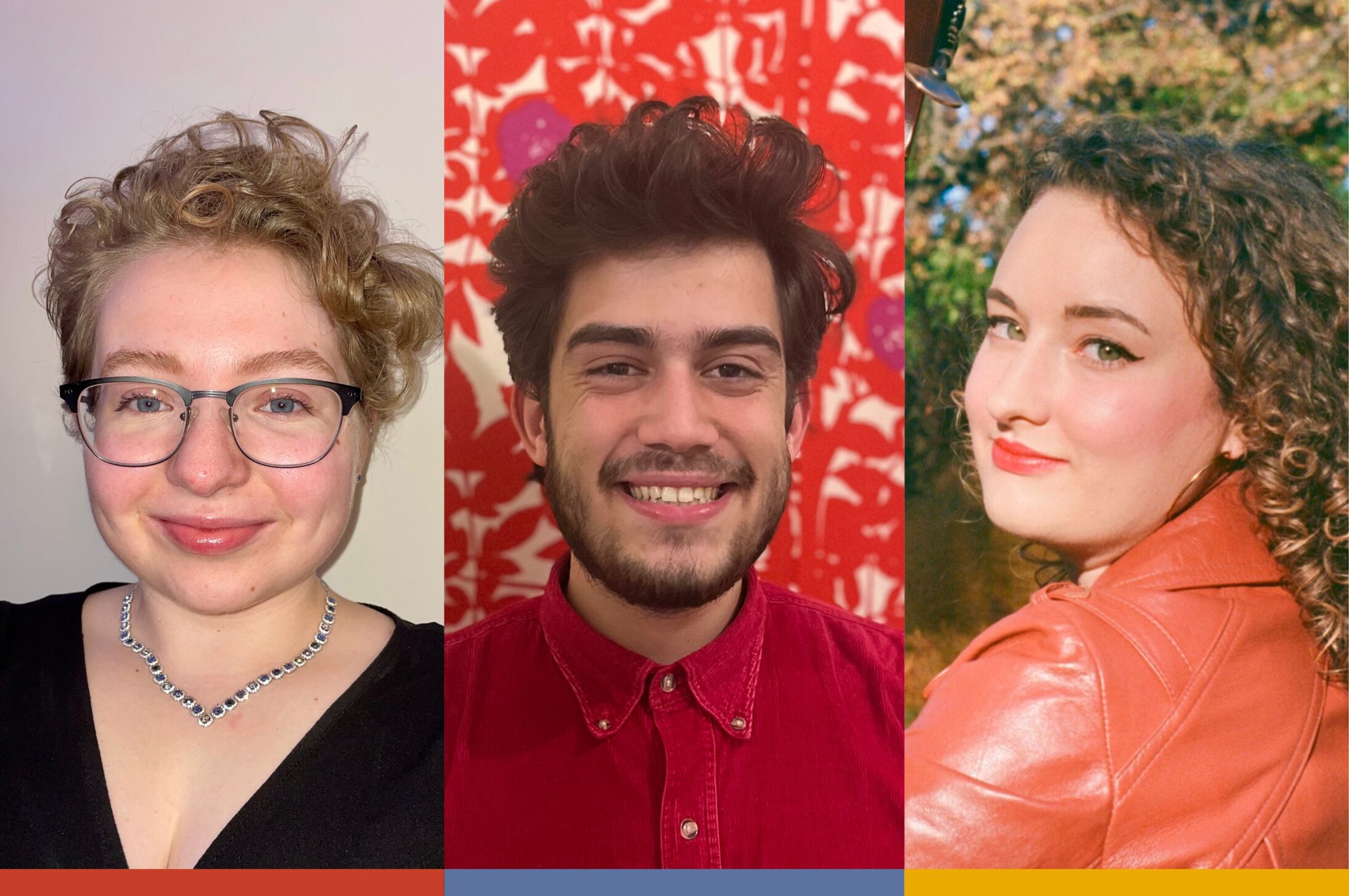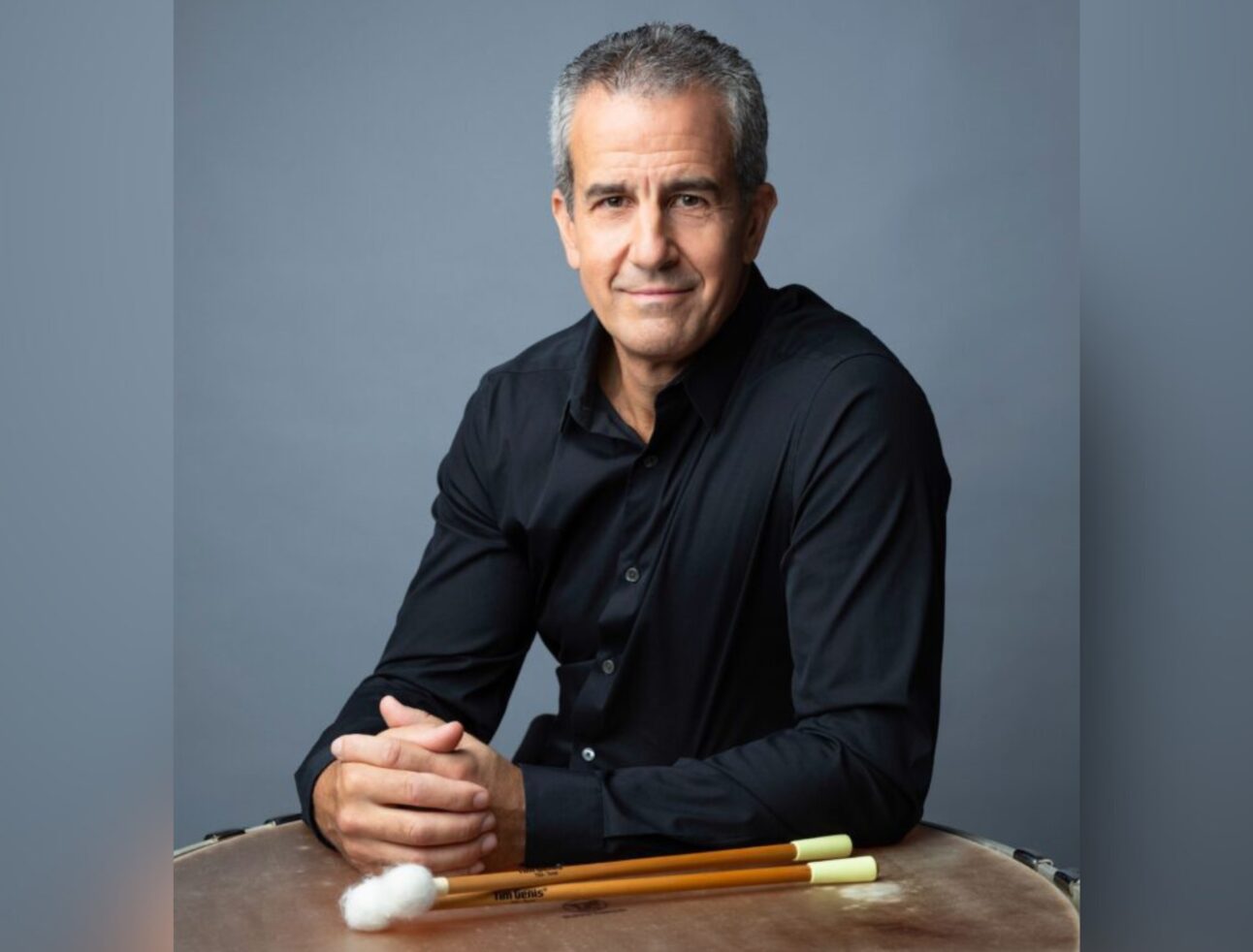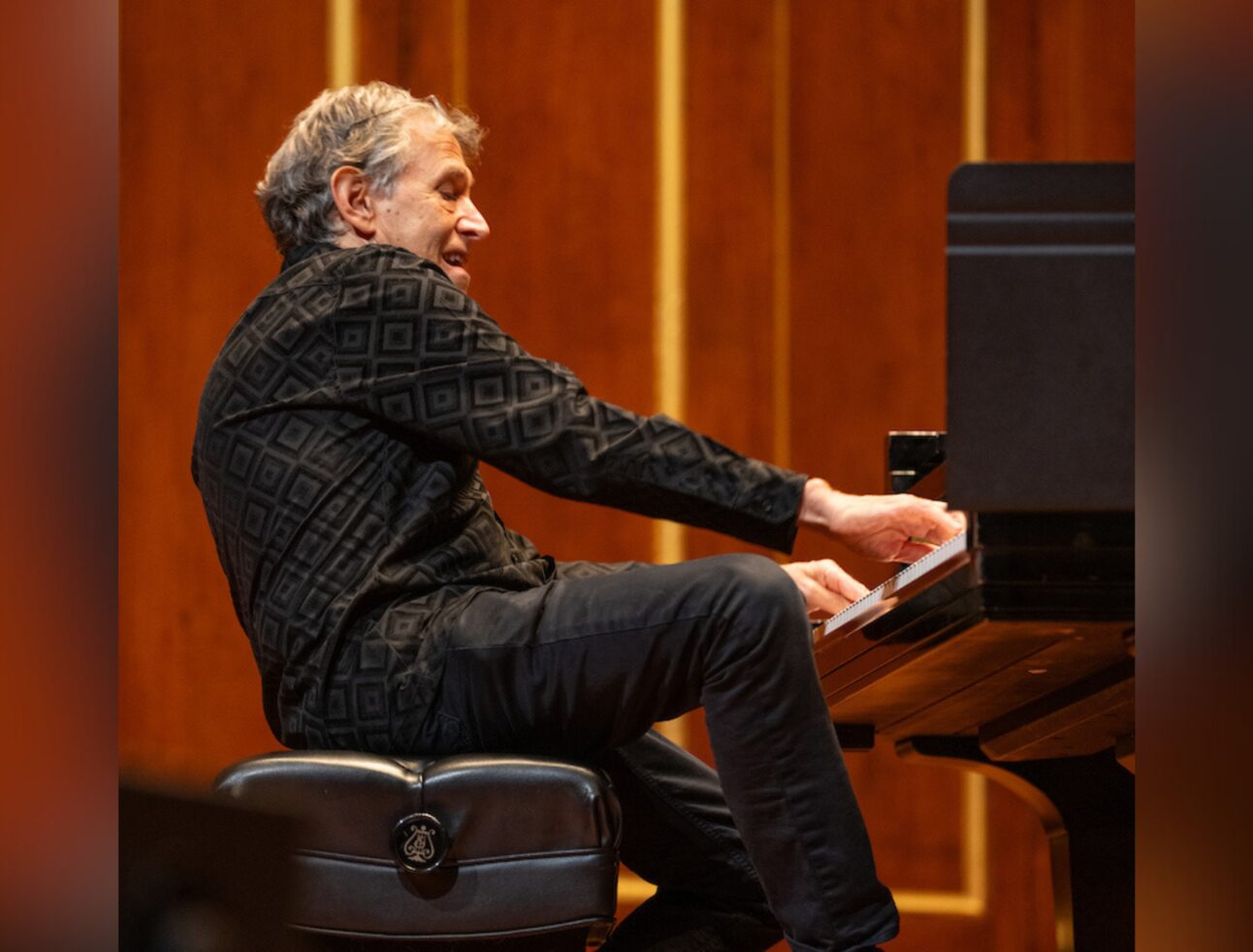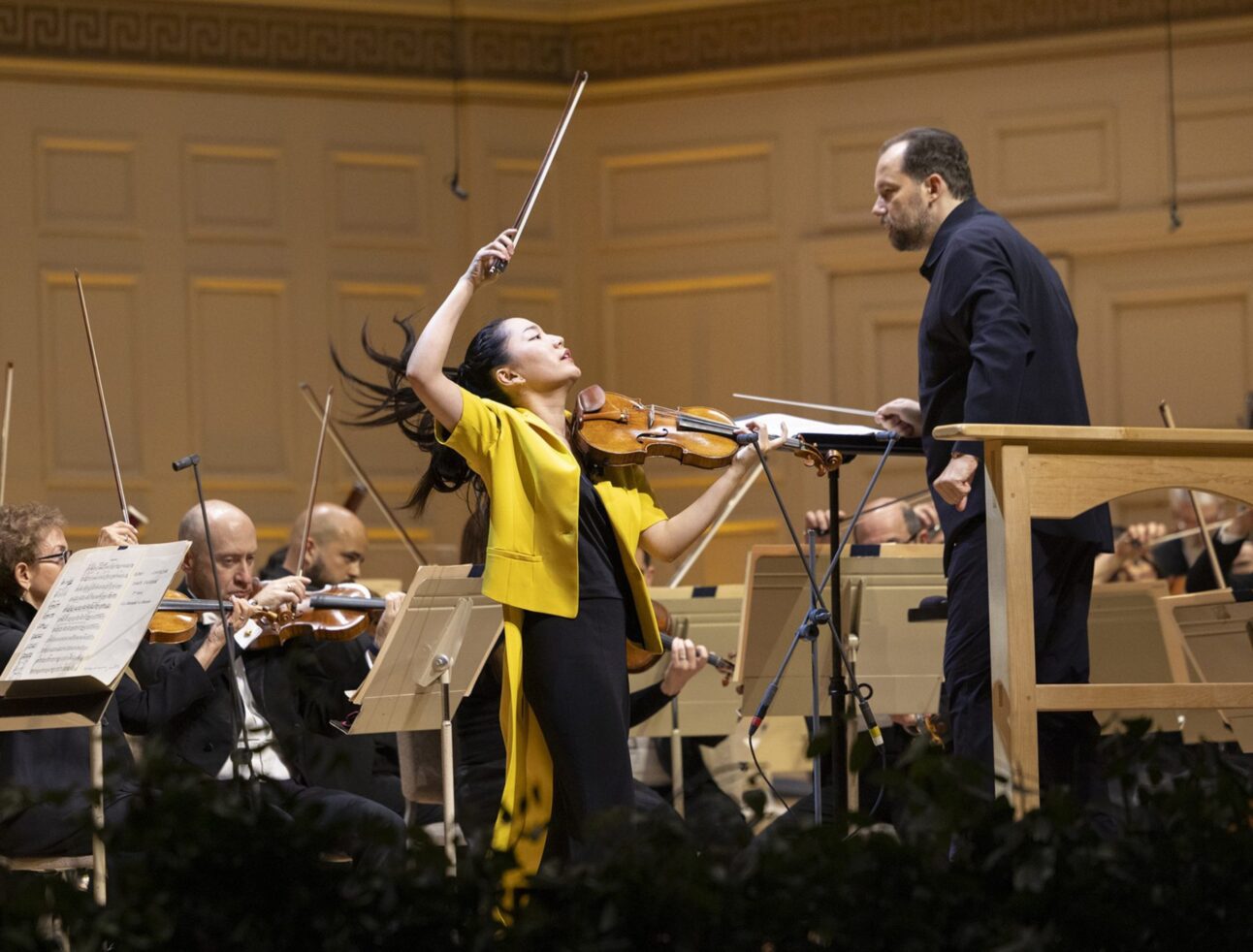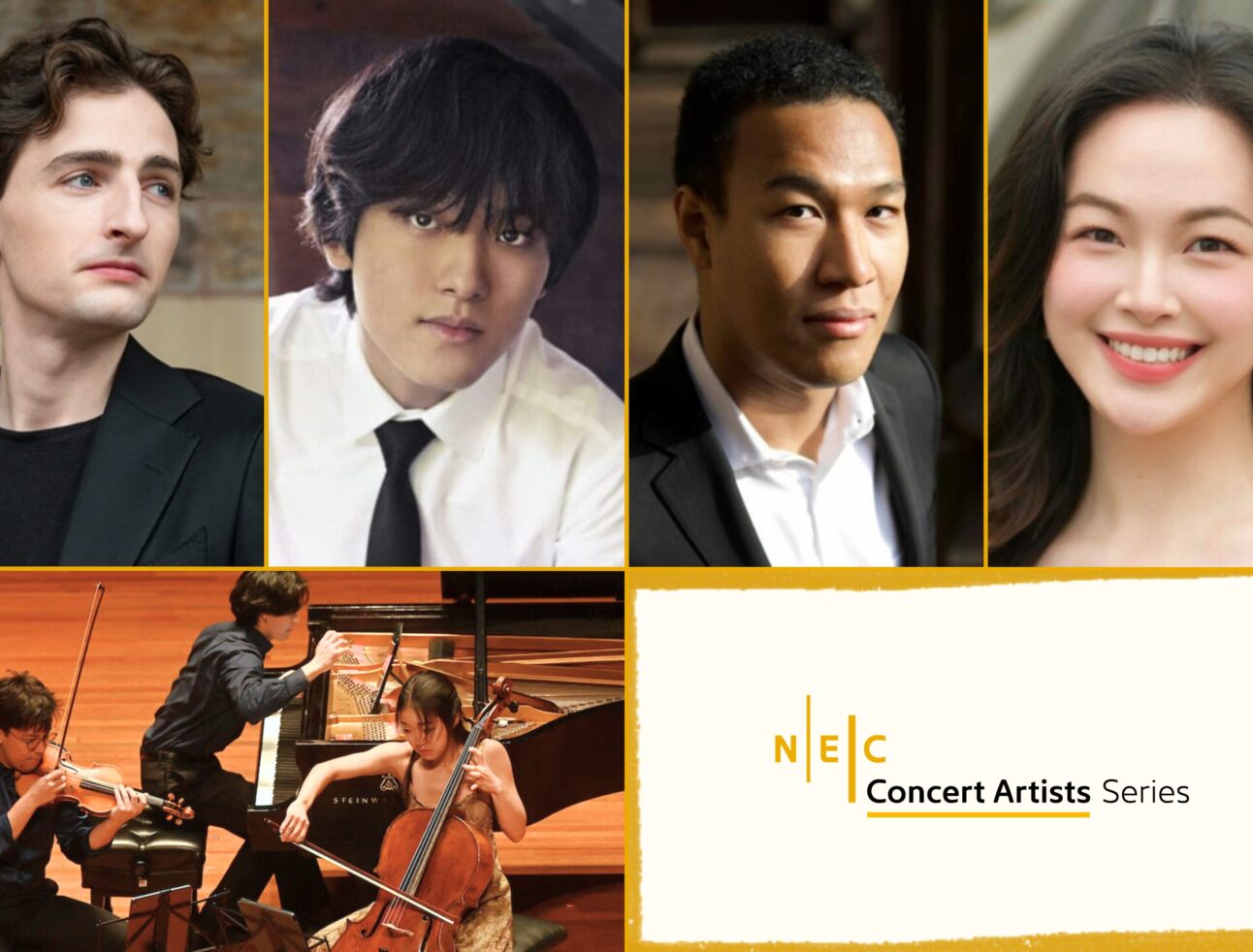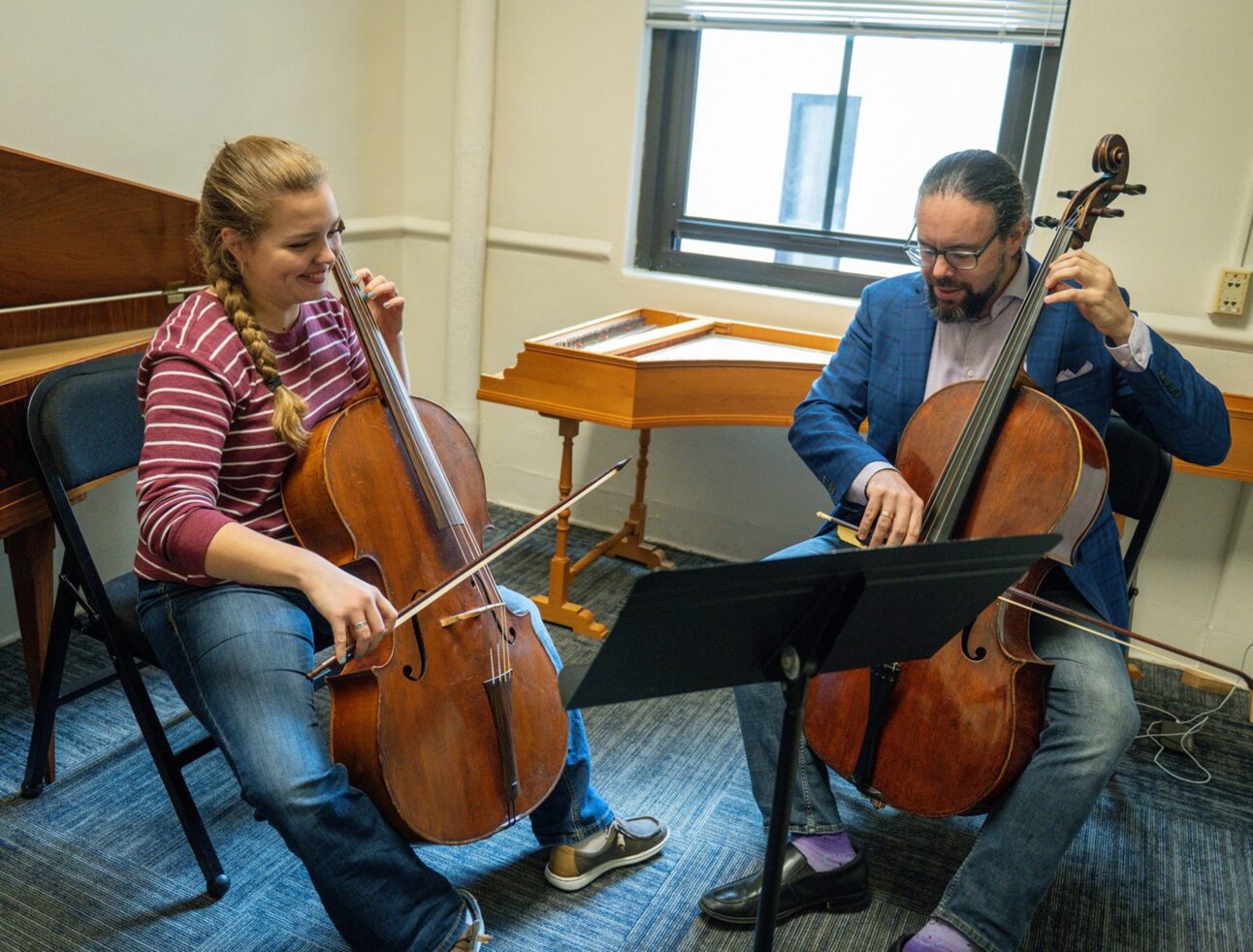From left: Molly Knight, David Paligora, and Hannah Marks
We recently asked some of the students who received Entrepreneurial Musicianship grants this past fall from NEC’s Community Engagement and Professional Studies Department what they’ve learned about themselves and their work through the projects the program funded. What follows are brief project descriptions the grant recipients provided to CEPS administrators in the fall, a question we recently asked each grant awardee, and their respective responses.
Molly Knight ’25, soprano — Gay as a Songbird: A Gala Celebrating Queerness in Music
“This gala is significant as it will provide queer musicians with a safe space to connect while raising awareness about the difficulties often faced by queer musicians and highlighting the queer resources available in Boston,” Knight’s project description reads. “This is a topic that is seldom talked about in the context of classical music.”
We asked Knight: How has curating and organizing Gay as a Songbird informed your work as an artist and advocate in the world?
“Curating and organizing Gay as a Songbird: A Gala Celebrating Queerness in Music has been transformative in shaping my identity as both an artist and an advocate. It has given me the opportunity to celebrate queerness in music, something I am deeply passionate about, while also fostering a community of the queer musicians at NEC. Through this process, I have learned the power of creating spaces where people feel seen and validated, and discovered how to create the most effective space through music. This experience has profoundly influenced how I approach my music, driving me to introduce advocacy into more of the music I perform.” — Molly Knight ’25
Hannah Marks ’26 MM, electric bass — Feed the Fire
“Feed the Fire,” Marks’s project description reads, “is a large-scale album recording project featuring six original compositions and three songs by composers Geri Allen, Robert Hurst, and Dewey Redman, all of whom represent an aesthetic that resonates with my own.” Marks, whose band was coached by NEC faculty member Jason Moran, aims to make a statement “as one of the few young women and bassist-bandleaders in jazz.”
“I hope to diversify representation in jazz,” Marks wrote, “and nurture an audience that will be with me for years to come.”
We asked Marks: How has writing and recording Feed the Fire informed your interest in and work toward diversifying representation in jazz?
“Working with Jason Moran as my mentor showed me how important it is to get mentorship from jazz elders. Unfortunately, young women are often excluded from these partnerships, which can often take place in late-night bar settings or at informal hangs. Intergenerational work is a crucial element of jazz, and I can now pass on the knowledge I received from working with Jason to my students — which include young women and economically disadvantaged students.” — Hannah Marks ’26 MM
David Paligora ’25 MM, trombone — Inu Tī Inu Kota: Constructions of Place and Identity in Musical Diaspora
“Music, both performed and listened to, is a way in which we define our own cultural identities,” Paligora’s project description reads. “It is through musical lenses that we refract and enhance our own perceptions about who we are and where we belong in our communities. What then happens when, through modern styles of living, musicians find themselves separated from both their musical upbringings and their present musical realities. How do we reconcile this tension of identity when placed in a cultural void? This is the center of my research.”
Paligora completed the research in New Zealand, where he presented his work at the International Council for Traditions of Music and Dance World Conference “one of the most competitive and high-impact ethnomusicological conferences in the world,” he explained. The title of his project is from a Tongan proverb.
We asked Paligora: How can your research become the basis for wider understanding of your subject, and how might that understanding inform cultural identity in the future?
“My research sought to present the stories of three people seeking their own cultural place. While direct connection to heritage can aid us, my research suggested that in these specific case studies, it was the unique complexities of their connections to their musical spaces that encouraged them to construct their own spaces and negotiate their own identities. Crucially, it is because of, and not despite these complexities, that one can construct for themselves a stronger sense of cultural and musical belonging. As diasporic communities grow around the world and we continue to globalize, understanding this unique construction and negotiation — understanding the struggles of second or even third generation diasporas — will be vital in organizing a new, pluralistic and inclusive society.
“The presentation of my research was also novel in that it places the stories and literal voices of my participants center stage. Understanding cultural identity is understanding people at a personal level, and no one is more qualified to speak about experiences than those who live them. I hope that this way of presenting this research, a more personal and evocative method, makes an impact to bring this ethnographic field out from behind the veil of academia and into a more personal and gentle space, where people speak and people listen.” — David Paligora ’25 MM
Learn more about NEC’s Entrepreneurial Musicianship program.
